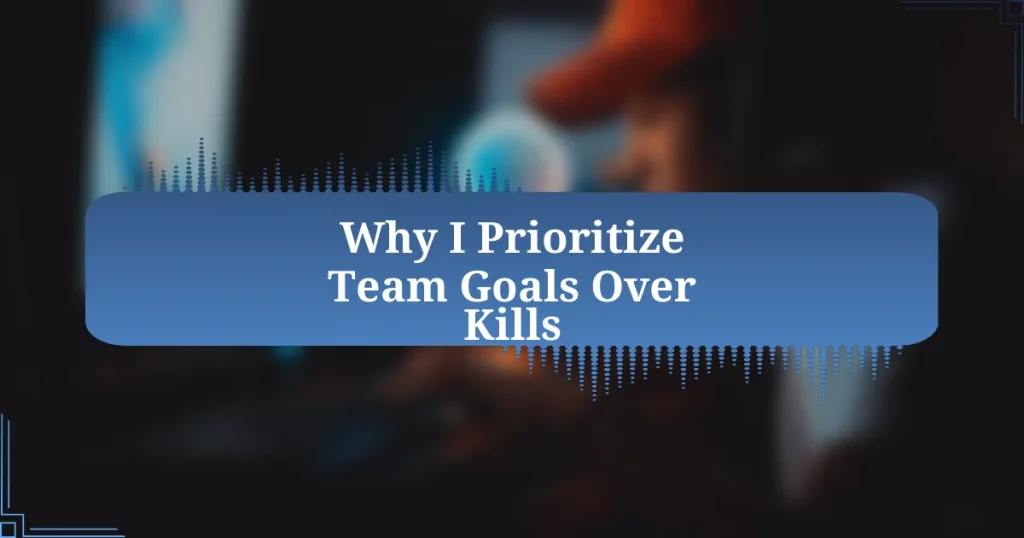Key takeaways:
- Understanding team goals enhances overall success in gaming by aligning individual efforts towards common objectives.
- Clear communication and role assignment foster teamwork and trust, significantly improving performance.
- Setting short-term objectives helps maintain focus and motivation during matches.
- Prioritizing team goals builds unity and emotional connections, enriching the gaming experience beyond individual achievements.
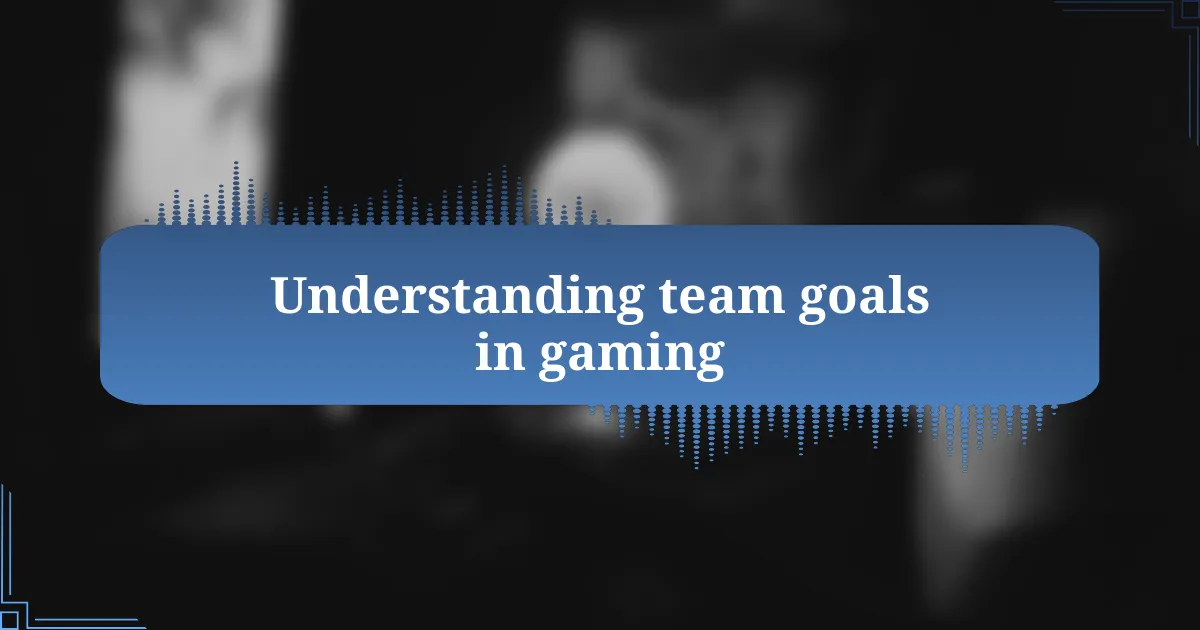
Understanding team goals in gaming
In any team-based game like Counter Strike 2, understanding team goals is crucial for success. I recall a match where we were down to our last round, and rather than hunting individual kills, we focused on securing the objective. That shift in mentality not only turned the game around but also created a sense of unity among us.
When I think about team goals, I often ask myself, “What does winning really mean to my team?” It’s not just about the personal glory of getting the most kills; it’s about working together to achieve a common victory. Each player contributes uniquely, and when we align our strategies towards shared objectives, it amplifies our chances of success.
Ultimately, team goals offer a framework that guides our individual actions. I’ve experienced matches where, despite not being the star player, my support and strategic play helped lead the team to victory. Isn’t it fascinating how a collective effort can often outweigh any single player’s prowess? That’s the power of focusing on goals that benefit the whole team.
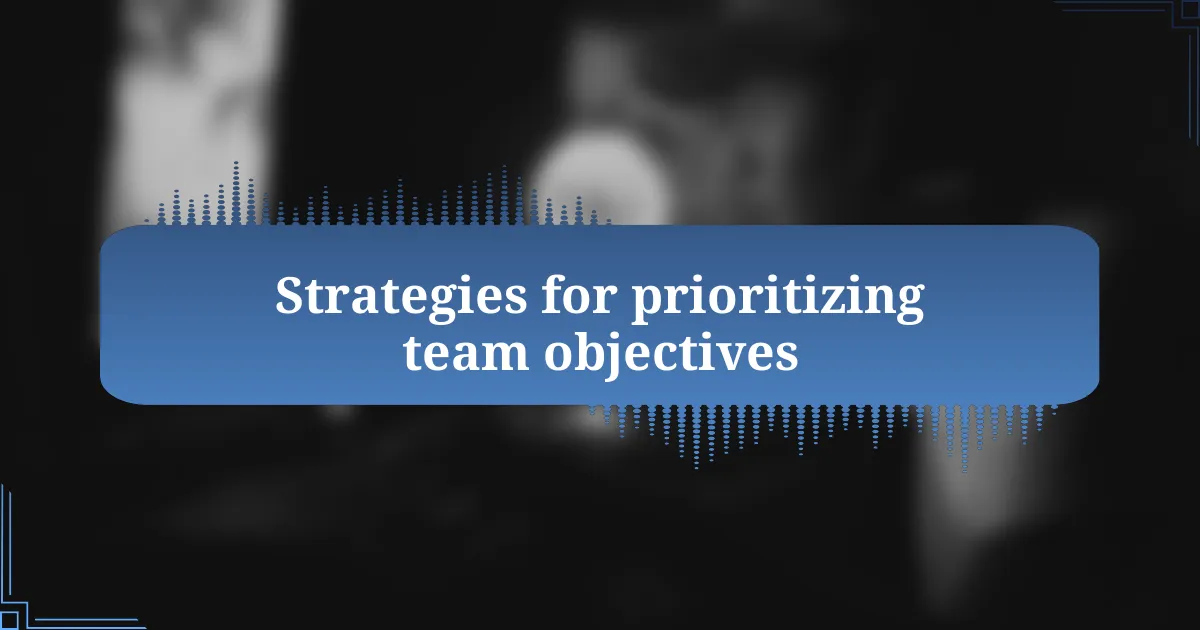
Strategies for prioritizing team objectives
When it comes to prioritizing team objectives, clear communication is a vital strategy. I vividly remember a game where we faced off against a highly skilled opponent. Instead of getting sidelined by ego, we opted to share information about enemy movements. In doing so, we not only secured crucial map control but also built trust, allowing everyone to play their part more confidently. Have you ever found that simply discussing your next steps can ignite a stronger team spirit?
Another effective approach is assigning specific roles based on individual strengths. During a memorable session, we had a player who excelled at sniping while another was a natural leader. By designating roles aligned with each person’s skill set, we not only played to our strengths but also created a cohesive strategy that felt inclusive. Don’t you think that when everyone knows their place, it naturally fosters teamwork and minimizes chaos?
Lastly, I’ve discovered that setting short-term objectives can heighten focus during matches. In one intense game, we decided to aim for controlling a single bomb site before worrying about the entire map. This strategy paid off, as we methodically dismantled our opponents. I often ask myself, how can we leverage these bite-sized goals to maintain momentum throughout the match? Breaking down the larger objective into smaller, achievable tasks can make victories feel more attainable, and that, in turn, keeps everyone motivated.
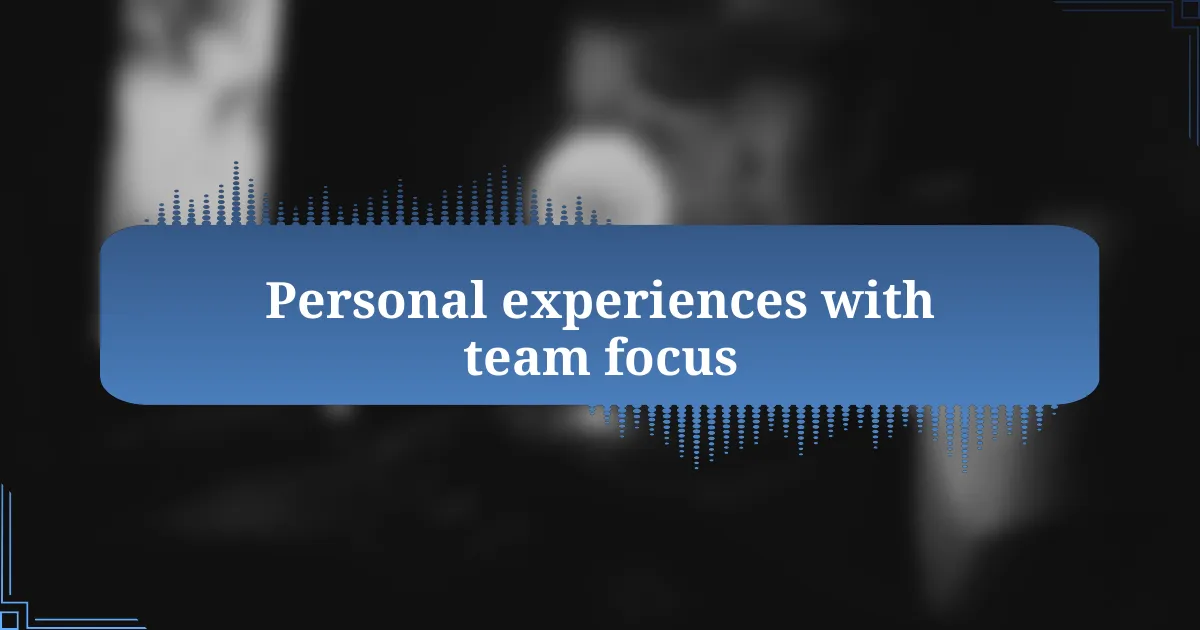
Personal experiences with team focus
I recall a particularly intense match where I made a conscious decision to prioritize my teammates over my own desire to rack up kills. Instead of rushing into firefights, I stayed back and provided cover for a teammate defusing the bomb. In that moment, the thrill of teamwork outweighed any adrenaline rush from individual success. Have you ever felt that rush when you know you’ve helped your team win, even if you didn’t get the most frags?
There have been instances where I had to remind myself that every game is a collective effort. I remember one time, when I was tempted to chase an enemy down solo, my gut told me to hold back and stick with my team. That single choice turned the tide; we ended up pinning the opponents down together. Isn’t it interesting how one decision can shift not just the outcome of a match, but also the team’s morale?
Sometimes, I find that my passion for team goals gives me a deeper sense of fulfillment than simply keeping track of kills. I think back to a tournament where we faced formidable players. By focusing on our team strategy instead of individual stats, we not only advanced further than expected, but we created bonds that extended beyond the game. Isn’t it fascinating how prioritizing the group’s success can carve out lasting connections, both on and off the battlefield?
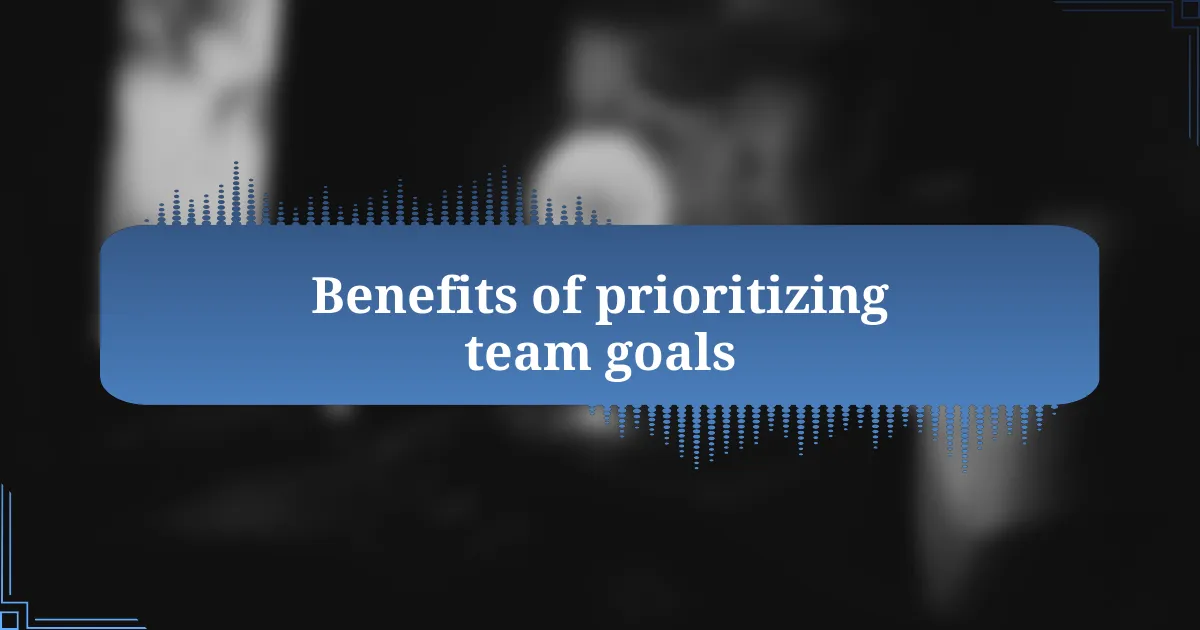
Benefits of prioritizing team goals
Focusing on team goals fosters a sense of unity among teammates. I recall a moment in a tense round when we communicated effectively, calling out enemy movements. That synergy not only led to our victory but also created an atmosphere of trust; we knew we could rely on each other. Isn’t it empowering to feel that you’re part of something greater than individual accomplishments?
Moreover, when we prioritize team objectives, it often leads to improved individual performance. In one intense match, I supported our sniper, allowing him to pick off enemies while covering his flank. Instead of feeling sidelined, I actually felt my skills improve as I adapted my gameplay to assist. Have you experienced the satisfaction that comes when your contributions amplify your teammates’ strengths?
Lastly, the emotional rewards of teamwork can be profound. After a grueling series of games, I remember celebrating small victories with my squad—like successfully executing a strategy together. Those moments built connections that went beyond just playing; we became friends. Isn’t it incredible how these shared experiences enrich our journey in gaming, giving us a sense of belonging?











